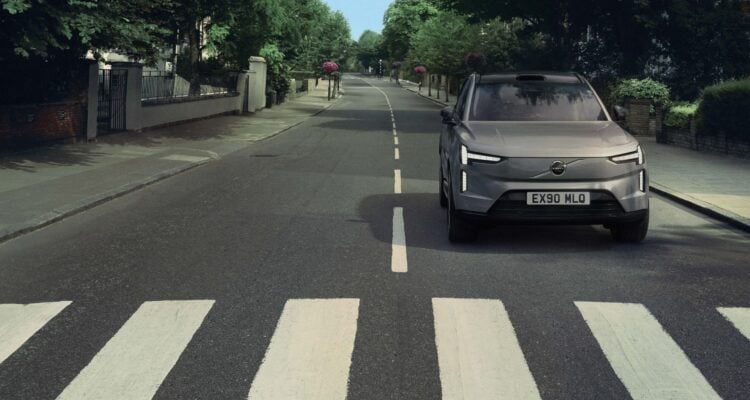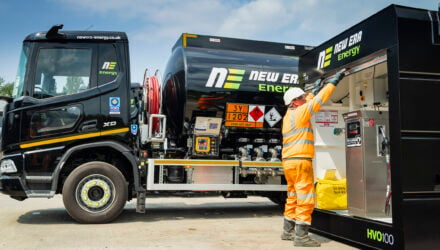In response to significant changes in vehicle usage and the reducing tax receipts from VED and Fuel Duty, the UK government is considering alternative means of raising revenue, and a shift to a Pay-Per-Mile (PPM) system is a proposal that merits serious contemplation. The idea comes at a time when the growing prevalence of electric vehicles (EVs), which are currently exempt from VED and, of course, do not pay Fuel Duty.
The traditional road tax system in the UK, based largely on VED, is becoming increasingly unsustainable. VED, which is currently linked to a vehicle’s CO2 emissions, has been effective at encouraging a shift towards low-emission and zero-emission vehicles. However, as more drivers switch to electric vehicles, which are exempt from VED, there is a growing concern over how the government will recoup the billions of pounds that could be lost in road tax revenue.
According to a 2023 Transport Committee report, it’s estimated that by 2040, the shift to EVs could result in a revenue shortfall of £35 billion annually from lost VED and fuel duty. This fiscal gap makes it crucial for the government to explore alternative revenue-raising measures. A Pay-Per-Mile system offers a solution that aligns with both the rising popularity of EVs and the need for equitable road usage charges.
“It’s clear that the increasing uptake of electric vehicles is a positive step towards reducing emissions, but the government must ensure that we still have a fair and sustainable way of funding our roads,” said the Huw Merriman, MP, previous chair of the Parliamentary Transport Committee in a 2023 statement.

Photo by Sara Kurfeß on Unsplash
Under a Pay-Per-Mile scheme, drivers would pay a fee based on the distance they travel rather than a flat annual tax based on vehicle emissions. This means that those who drive more would pay more, while those who use their vehicles less frequently would benefit from lower costs. The aim is to create a more equitable system that takes into account the actual usage of roads.
There are several ways such a system could be implemented:
- GPS-Based Tracking: Vehicles could be equipped with GPS technology that monitors the number of miles driven. This option is seen as one of the most accurate but could raise concerns over privacy and data security.
- Annual Mileage Declarations: Drivers could report their mileage at regular intervals, potentially during MOTs or insurance renewals. This would require some level of self-reporting and verification but may be simpler and less invasive than GPS tracking. However, the potential for fraud could be high.
- Toll-Based System: Another option is to levy charges on specific roads, such as motorways and major routes. This could operate similarly to the London Congestion Charge, where drivers are automatically billed when they enter certain zones.
Each method has its advantages and drawbacks, and it’s likely that any new system would need to balance precision, fairness, and practicality. The government could also explore differential pricing, where rates vary depending on vehicle type, emissions, or the time of day, incentivising the use of greener vehicles and off-peak travel.
The introduction of Pay-Per-Mile taxation is expected to have wide-ranging effects on UK drivers. One of the most immediate benefits would be that those who drive less will pay less, which could particularly benefit rural drivers who rely on vehicles for shorter trips. It could also encourage more sustainable driving behaviours, such as carpooling, reduced commuting, and the use of public transport, which would help in reducing congestion and emissions.
However, for drivers who depend heavily on their vehicles for work such as home carers and other community based workers, this could mean an increase in costs. This has raised concerns about the affordability of road use for those on lower incomes or living in areas with limited public transport options.
“It’s crucial that any new system does not disproportionately impact those who have no viable alternative to car travel,” warned Nicholas Lyes, Head of Roads Policy at the RAC. “We need to ensure that essential travel remains affordable while encouraging sustainable practices.”
The Pay-Per-Mile proposal could also play a role in meeting the UK’s broader environmental goals. By charging drivers based on usage, the system could reduce unnecessary trips and lower overall emissions, helping the country progress towards its goal of net-zero emissions by 2050.
However, to avoid placing an undue burden on the public, any new system would need to be carefully managed. There have been suggestions of integrating PPM with incentives for using greener vehicles, offering tax breaks or exemptions for electric vehicles, or applying variable rates to promote off-peak travel.
As the UK transitions towards a more sustainable future, Pay-Per-Mile taxation is emerging as a potential solution to the revenue challenges posed by the rise of electric vehicles and the decline of fuel duty. While the system could offer a fairer, usage-based approach to road funding, it will require careful consideration to ensure it does not disproportionately affect certain groups of drivers.
With proper implementation, this change could benefit both the economy and the environment, ensuring that roads remain funded while encouraging a shift towards more sustainable transport.
“The pay-per-mile tax, which would see car owners pay extra depending on how much they drive, is rumoured to be on the upcoming budget agenda, pencilled in for October 30th,” says Vytas Palovis, VP of Growth at Ovoko. “Though little is known about its mechanism, the pay-per-mile tax could inadvertently fuel a rise in odometer tampering. As drivers look for ways to minimise their road tax burden, some may resort to illegal methods, which can have serious safety and financial implications for car buyers.”
Author: Mark Salisbury, Editor, Fleetpoint










P John
( Monday, September 30, 2024 - 18:00 )
I understand the need to change the system but making it fair will be very difficult. I work as a contractor often out of town and can do upwards of 350 miles a week. I would be looking at paying over £2500 to travel to my job which seems very harsh.
Lesley
( Saturday, September 28, 2024 - 07:10 )
I disagree that rural drivers would benefit. We have poor public transport, so rely heavily on cars to get anywhere. And living rurally means travelling longer distances to get anywhere. For example it’s an 18 mile round trip for me to get to a supermarket and the doctors. The nearest big town is 120 mile round trip. The notion that rural drivers will benefit is ludicrous! My current car tax is £20 a year.
James Stuart
( Thursday, September 26, 2024 - 07:50 )
Sirs,
No one has mentioned that the Police will also be able to issue speeding tickets automatically after calculating time over a certain distance taking into account speed limits in operation!
How are the public supposed to check the figures the DVLA are using to calculate the charges imposed?
More ‘cloned’ number plates. How does the DVLA propose to prevent this?
Loss of privacy. ‘They’ will know where you are at all times.
How will this be enforced on foreign-registered vehicles? The DVLA do not follow up on foreign drivers and speed cameras!
Mark Cross
( Thursday, September 26, 2024 - 07:26 )
you seemed to have missed off fuel as a tax collection method?
Mark Salisbury
( Thursday, September 26, 2024 - 08:56 )
I did mention fuel duty in the article, but as the growth of EVs continues, less and less petrol and diesel will be bought, and EVs don’t pay fuel duty – though of course the do pay VAT.
Lindsay Stone
( Wednesday, September 25, 2024 - 17:47 )
I would love to have an electric vehicle but simply cannot afford it as a pensioner of 72 with little more than the highest rate of state pension and a few thousand in the bank in case of future care needs. I am fortunate that I do have a driveway where I park my car and could have a charging point, but such is not the case for most of the people living in my town.
If PPM is introduced it would have to cover electric vehicles as well as they also use the roads. It is not fair to punish me for not being able to afford to change my mode of transport. I hope all those ordinary working people who so avidly flocked to vote for Labour*s new improved Britain will not be kicking themselves when they are having to think about whether or not they can afford to go to work in the car.